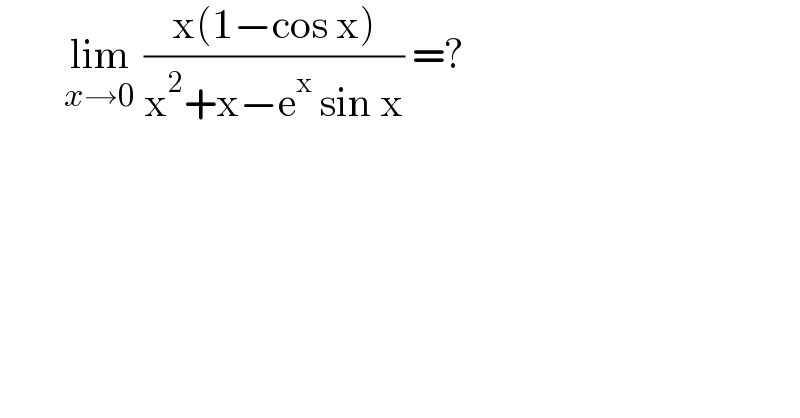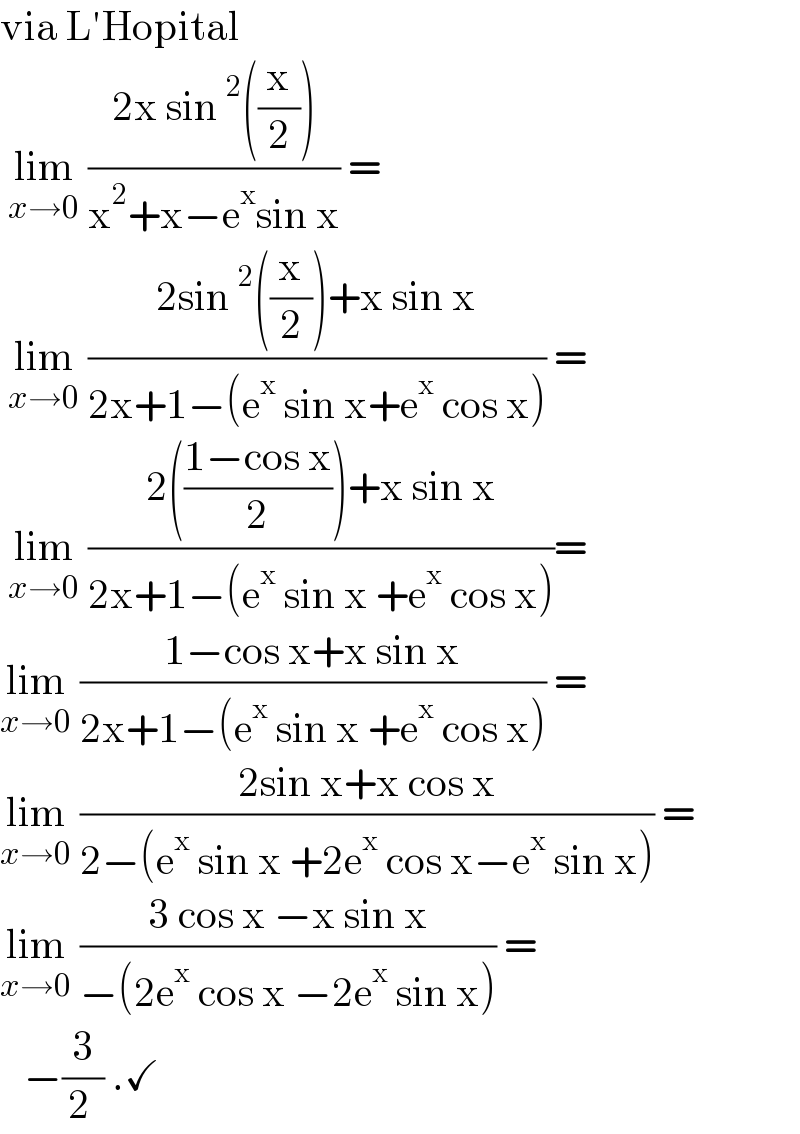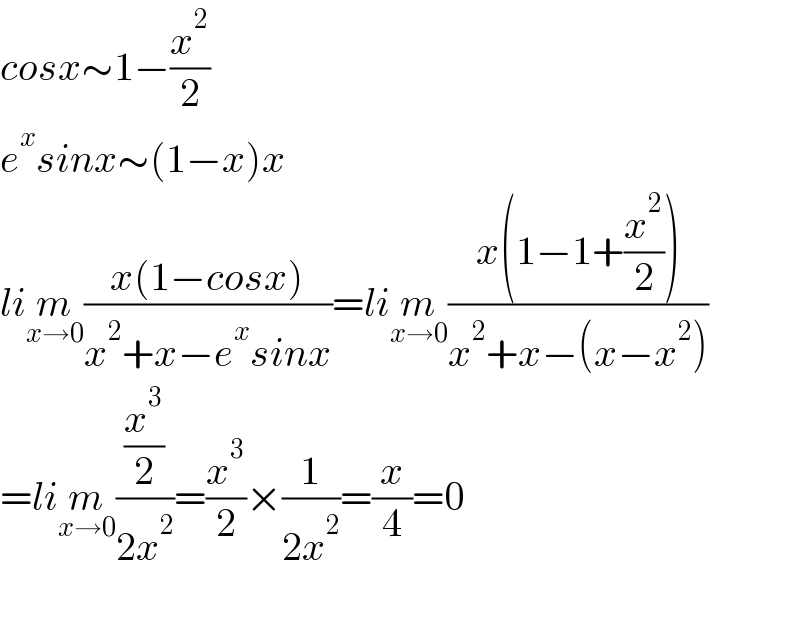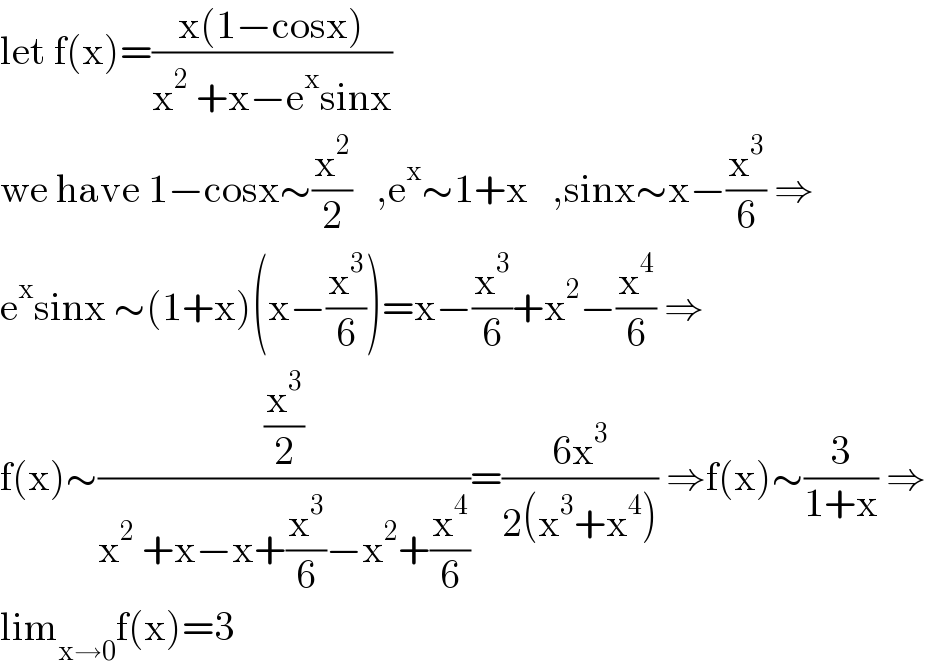
Question and Answers Forum
Question Number 147349 by bramlexs22 last updated on 20/Jul/21

Commented by bramlexs22 last updated on 20/Jul/21

Commented by EDWIN88 last updated on 20/Jul/21

Answered by ArielVyny last updated on 20/Jul/21

Commented by bramlexs22 last updated on 20/Jul/21

Answered by mathmax by abdo last updated on 20/Jul/21

Commented by liberty last updated on 20/Jul/21

